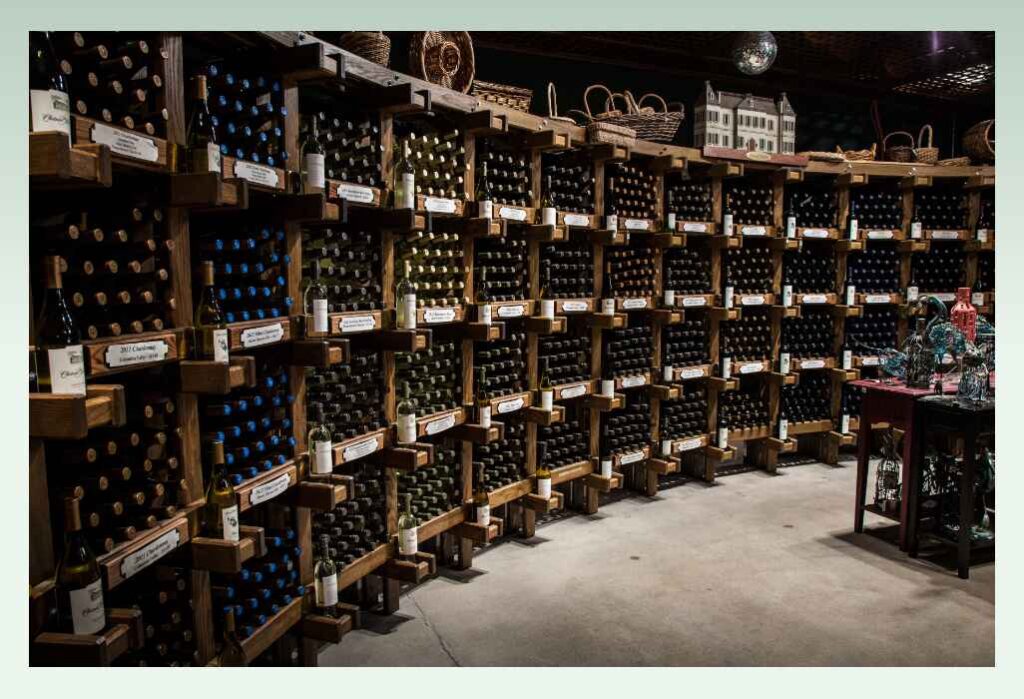How to Start a Wine Business from Home [2024]

There is no denying that launching a wine business is ripe for profits; however, being successful in this industry requires plenty of time, money, and effort. Even the most experienced people may find it daunting.
Don’t panic if you are looking to get into the wine industry but lack the experience & capital to launch a business. We will walk you through how to start a wine business from home. Be assured that even without a winery or vineyard, you can still make things happen.
Ready? Fantastic, let’s get right to it.
1. How to start a wine business: A Step-by-step guide
1.1. Get to know wine inside out
Before doing any business, especially if you’re new to the product, it’s crucial to learn all about it. Unless you know much about your product, it’s tough for your business to do well, right? The same goes for the wine business. Just think about it. Without understanding wine and its market, you’re likely to struggle to:
- Identify the in-demand types of wine
- Consult the customers accurately
- Guide and lead your employees
- Implement marketing and branding efforts effectively
- And more
So, take the time to dive into the world of wine seriously—it’s a key factor for a thriving business.

1.2. Research your market and competitors
To kickstart a wine business, start by researching the market and your competitors. This gives you a clear picture of the industry, helping you foresee and minimize potential challenges and risks in running your business.
Understanding your rivals, including both strengths and weaknesses, is the easiest way to outperform them in the competitive wine industry. Ask questions like what they sell and why customers choose them. These insights help you better know your target customers and tailor your offerings to properly meet their needs.
1.3. Define your target customers
After researching the market and deciding on the types of wine, it’s important to figure out who your potential customers are—the ones interested in buying your wine. For instance:
- High-end or imported wine lines: usually appeal to customers with higher incomes. They may buy them not just for drinking but as valuable gifts or for building collections.
- Popular wine lines with affordable prices attract budget-conscious customers, including households and restaurant/bar owners seeking affordable options for a broad customer base.
Knowing your target customers can save you time and money, especially when resources are limited. It greatly affects key aspects of your business, from choosing locations to marketing and recruitment, so don’t overlook it.

1.4. Develop an effective business plan
To run your business smoothly, it’s essential to write a wine business plan that outlines the necessary tasks in both the long and short run.
To do it, analyze the information gathered from researching the market, target customers, and competitors. Then develop a comprehensive plan that covers business models, finance, marketing, sales, HR, and management.
Having such a business plan in place can help you tackle any challenges that may arise with confidence.
💡Uncover more essential tips and ideas to improve the efficiency of your drink business right here:
- Top 300+ Lucky & Unique Drink Business Names
- Top 18 Small Wine Business Ideas Trending in 2024
- Best Brewery POS System: Brew Your Success for 2025
- Best POS System For Liquor Store: The Winner Is?
- Discover 6 Best POS System for Bars That Hit All The Right Notes
1.5. Choose the right business model
There are different ways to run a wine business. Opening a physical store, selling wine online, making wine, or being a wholesaler/distributor—all these models have their pros and cons. Therefore, you should carefully consider the one that suits your preferences, resources, and market demand best.
Sure, you can even mix things up, like selling both in a store and online or combining winemaking with opening a minibar. There are plenty of wine business ideas to consider!

1.6. Determine Startup Costs
You should calculate your startup costs before launching your business, so you can allocate your capital effectively. Here’s a list of costs for starting your wine business:
- Permit and licensing fees
- Location leasing/building
- Store design and setup
- Equipment and supplies (shelves, lighting, wine gift boxes, cleaning, security system, POS system, etc.)
- Inventory
- Machines for bottling and labeling your wine
- Closure machine (used for corking bottles)
- Utilities (electricity, water, and internet for the initial months)
- Employee expenses
- Marketing & sales
- Shipping and logistics
Remember, the listed costs are for businesses selling pre-made wine both in-store and online. If you’re only online, skip expenses tied to physical stores.
1.7. Get the necessary licenses and permits
To kickstart a legal business in any industry, including wine, make sure to get the necessary licenses and permits. Moreover, wine is classified as a special commodity, and selling wine has specific requirements that must be met. Here are some licenses and permits you need to start your wine business:
- Business License: You need to obtain this license from your local authority. To apply, prepare details like your wine business name, business structure, contact information, Tax Identification Number, etc.
- Federal license for beverage alcohol
- Operating state license for alcoholic beverages
- Sales tax permit
- Others
Check with your local authorities as licenses and permits may vary by area.
1.8. Find a place that can make wine for you
If making wine isn’t an option for you, find a trustworthy winemaker. Be selective, as not all of them provide good prices. When choosing a winemaker, make sure they:
- Have experience and are trustworthy.
- Offer certified products meeting specific standards.
- Provide a diverse and high-quality wine selection.
- Offer attractive discounts and post-paid options.
- Assist with valuable business advice.
- Offer great customer service
To find the right suppliers, you can search online or ask people knowledgeable about the specific type of wine you want to sell.
1.9. Bottle and label the wine
If you have a good budget and know how to make wine, consider starting a winery business from home. Otherwise, it’s easier to just buy ready-made wine and start your own wine brand. As aforementioned, you need to work with suppliers to pick your wine, and then all that’s left is to bottle and label it.

Make sure to clean all bottles and equipment well to avoid contamination. After bottling, store the wine in a cool, dark place.
Don’t forget about the wine label—it should catch the eye and tell customers briefly about the wine such as the wine name, winery, alcohol content, and legal info. Adding a touch of branding is inevitable as well.
1.10. Promote your brands and products
It’s time to spread the word about your brands and products so your customers can find you. If you’re starting an online wine business, there are various ways to promote and sell your wine.
- Website: A good website can bring in lots of visitors and sales without spending much. You can even create your website yourself using platforms like Shopify, WooCommerce, or Wix, no tech skills needed.
| A series of articles on website builders for small businesses you may also like: Shopify vs Etsy: Which is the Right One for Startups? Shopify vs Wix: A Detailed Comparison for Small Businesses Shopify and Volusion: The Best Platform for Your Store? |
- Social media: Use social media platforms like Facebook, Instagram, YouTube, Pinterest, and TikTok to introduce your brand, showcase products, and connect with your audience through interesting, helpful, and relevant content. Plus, some of these social platforms let you sell your products and leverage their advertising tools to reach a wide audience.
- Marketplace: It’s an eCommerce marketplace where buyers and sellers across industries connect. Platforms like Amazon, eBay, and Walmart offer a chance to sell your wine and increase your brand exposure to a wider audience.
- Affiliate marketing: Start a wine affiliate program to increase brand visibility and sales. When others share your links online and someone clicks through to make a purchase, they earn a commission.
- Traditional marketing: Use traditional marketing methods such as word of mouth, distributing leaflets, and visiting restaurants, diners, or bars to introduce your wine.
One more thing to note is being authentic. Don’t give false details about how your wine is made or create a fake brand story just to impress customers.
And that’s 10 key steps on how to start a wine business from home. Hopefully, it’s comprehensible and practical enough for you to apply to your business. Next, we’ll introduce a successful wine brand from Washington State, with a strong desire to inspire you to embark on your own startup journey.
2. An example of a successful wine brand
Established in 1934, Chateau Ste. Michelle is the oldest winery in Washington State and a renowned wine brand in the USA. This brand was honored as the 2004 American Winery of the Year by Wine Enthusiast magazine for its premium wines.
Chateau Ste. Michelle strives to showcase the distinctive qualities of their Washington State vineyards, but still craft wines that give a pleasant experience and complement well with food. The Chardonnays boasts elegance and complexity, the Cold Creek Cabernet Sauvignon stands out with its powerfulness, and the Rieslings are crisp and refreshing. Each wine from this Washington State brand has its own unique trait, indeed.

Chateau Ste. Michelle consistently researches and innovates its wines, while staying true to classic winemaking traditions, all in pursuit of the finest quality wines from Washington.
If you’re dreaming of selling Chateau Ste. Michelle’s wine someday or even having a world-famous brand like theirs, start working hard now. Success comes to those with determination and a positive mindset.
3. It’s time to take action
Starting a wine business can be highly profitable and rewarding, but that’s only if you have a passion for wine and dedicate your time and money to it. High risk, high return, right? As you succeed, you must keep learning about wine and adopt effective business strategies to stay competitive.
Hopefully, throughout this eComStart article, you can learn how to start a wine business from home without needing a vineyard or winery. Have any ideas or questions to share? Comment below to let us know.
Follow eComStart.io to stay on top of the latest articles on how to start a business.
4. FAQs


